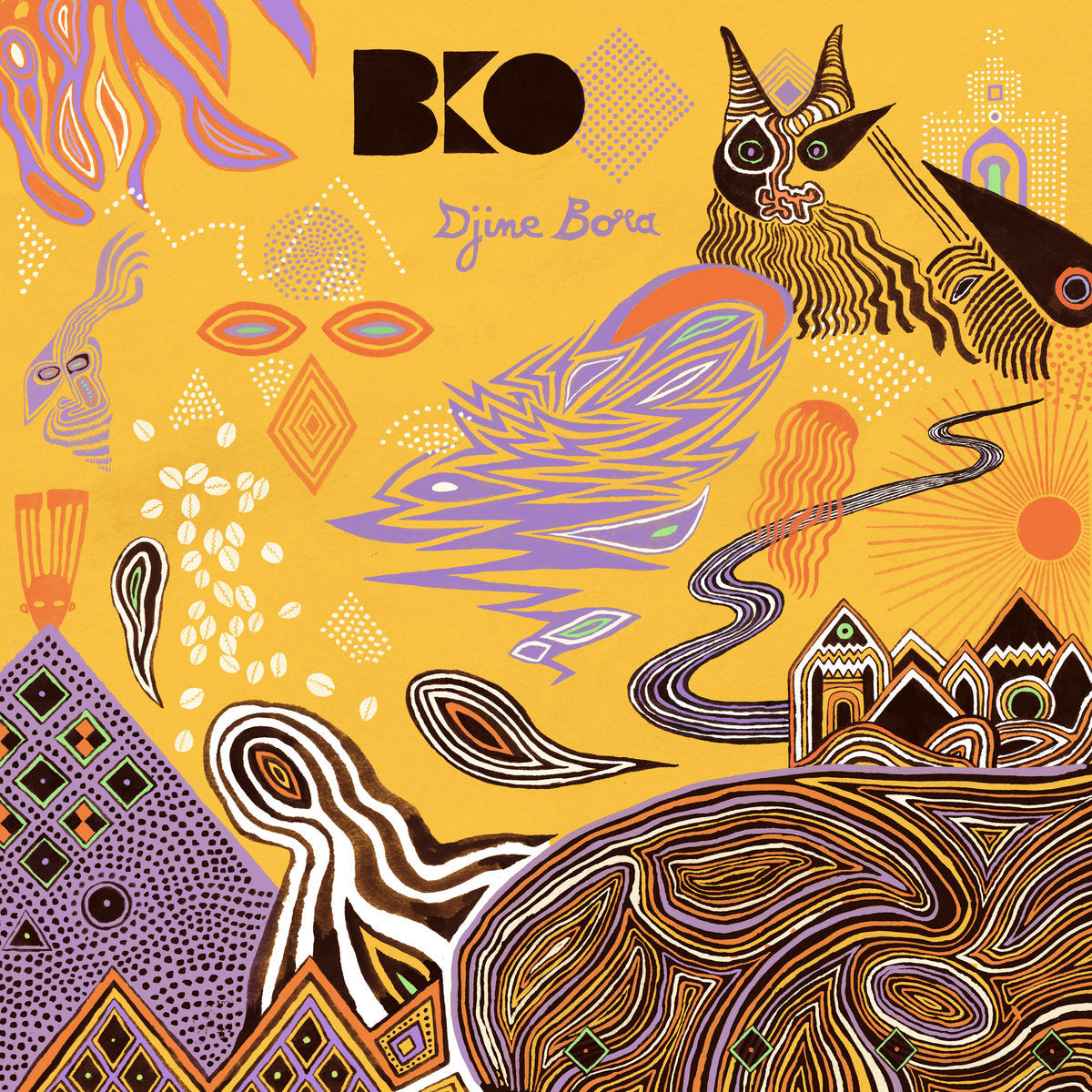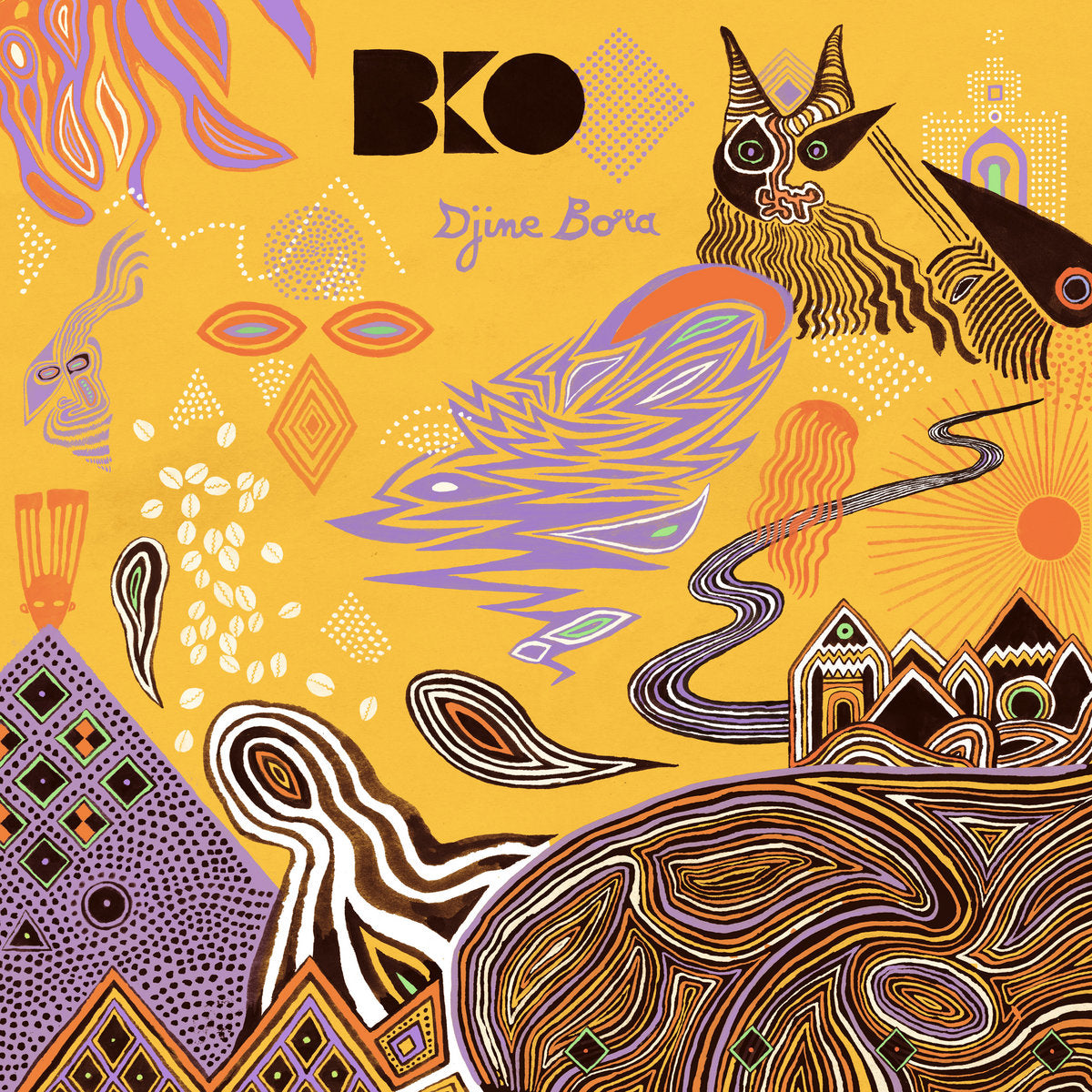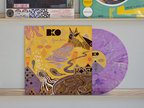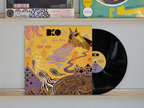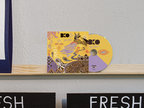Pao J. Dragon Empowering electrified strings! And vocals too!
Favorite track: Kekereke.
1
/
of
1
My Store
Djime Bora “BKO”
Djime Bora “BKO”
Regular price
$44.00 USD
Regular price
Sale price
$44.00 USD
Unit price
/
per
Couldn't load pickup availability
Djine Bora
by BKO
|
|
Toumaro 00:00 / 03:26
|
||
|
|
|
|
|
-
Streaming + DownloadIncludes unlimited streaming via the free Bandcamp app, plus high-quality download in MP3, FLAC and more.€8 EUR or more
-
Record/Vinyl + Digital Album1 COPY PER CUSTOMER. IF YOU ORDER MORE WE’LL SEND BLACK ONES FOR ALL EXTRA COPIES ORDERED. THANKS.
Includes unlimited streaming of Djine Bora via the free Bandcamp app, plus high-quality download in MP3, FLAC and more.ships out within 7 days€20 EUR or more
-
Record/Vinyl + Digital AlbumIncludes unlimited streaming of Djine Bora via the free Bandcamp app, plus high-quality download in MP3, FLAC and more.ships out within 7 days€18 EUR or more
-
Compact Disc (CD) + Digital AlbumIncludes unlimited streaming of Djine Bora via the free Bandcamp app, plus high-quality download in MP3, FLAC and more.ships out within 7 days2 remaining€13 EUR or more
|
|
1.
|
|||
|
|
2.
|
|||
|
|
3.
|
|||
|
|
4.
|
|||
|
|
5.
|
|||
|
|
6.
|
|||
|
|
7.
|
|||
|
|
8.
|
|||
|
|
9.
|
|||
|
|
10.
|
about
In response to the current political and ecological turmoil, the famous Malian quintet BKO appeals to the magical spirit of the djinn with Djine Bora (the appearance of the genie). An explosive and mystical third album, embodied by a music of resistance, the fruit of their unique experimentation with Mandingo music and their extraordinary history.
The three letters B.K.O. are the code for Bamako airport. It is in the Malian capital that the group has been rehearsing since 2012. In the same year that Mali declared a state of emergency, no one could have imagined that these musicians would be responsible for three albums and over 450 concerts in 25 different countries. BKO fights, does not fail, unifies and looks like no one else.
In this album, the band delivers an abrasive music where tradition is tinged with rock, polyphonies, distortions and shrill breaks. They invoke ancestral spiritualities by marrying for the first time in Mali two diametrically opposed traditions.
An electric combination of Djeli N'goni, the guitar of griot Mamoutou Diabaté, and Donso N'goni, the six-stringed lute of Adama Coulibaly, a member of the secret brotherhood of Bambara animist hunters. These inimitable sounds are supported by a rhythm section represented by the two founders of BKO, percussionist Ibrahima Sarr and Aymeric Krol with his drums rigged with percussion (calabash, dununs and cymbals). But above all, this hypnotic sound exploration with its visceral and feverish rhythms could not exist without the presence of their charismatic singer Fassara Sacko. His hoarse voice is inhabited, it blazes and revives the multi-secular songs as well as the claims of the people of Bamako (infant mortality in Sadiona, immigration in Tounga, poverty in Koli). Although he has lost his eyesight over the course of the tours, his energy and conviction is unrivalled, perhaps the djinn has something to do with it, or it has become incarnated in each of the musicians.
In the course of the ten tracks of Djine Bora, BKO propels the traditions within a powerful and hybrid universe, just like Bamako. In this bewitching atmosphere, crackling concrete and ritual ceremonies meet. The group has released one of its most accomplished albums, tinged with trance, enigmatic melodies (Ntiaro's Peulh prayer) and unifying messages (Maya, Bamako, Toumaro).
The three letters B.K.O. are the code for Bamako airport. It is in the Malian capital that the group has been rehearsing since 2012. In the same year that Mali declared a state of emergency, no one could have imagined that these musicians would be responsible for three albums and over 450 concerts in 25 different countries. BKO fights, does not fail, unifies and looks like no one else.
In this album, the band delivers an abrasive music where tradition is tinged with rock, polyphonies, distortions and shrill breaks. They invoke ancestral spiritualities by marrying for the first time in Mali two diametrically opposed traditions.
An electric combination of Djeli N'goni, the guitar of griot Mamoutou Diabaté, and Donso N'goni, the six-stringed lute of Adama Coulibaly, a member of the secret brotherhood of Bambara animist hunters. These inimitable sounds are supported by a rhythm section represented by the two founders of BKO, percussionist Ibrahima Sarr and Aymeric Krol with his drums rigged with percussion (calabash, dununs and cymbals). But above all, this hypnotic sound exploration with its visceral and feverish rhythms could not exist without the presence of their charismatic singer Fassara Sacko. His hoarse voice is inhabited, it blazes and revives the multi-secular songs as well as the claims of the people of Bamako (infant mortality in Sadiona, immigration in Tounga, poverty in Koli). Although he has lost his eyesight over the course of the tours, his energy and conviction is unrivalled, perhaps the djinn has something to do with it, or it has become incarnated in each of the musicians.
In the course of the ten tracks of Djine Bora, BKO propels the traditions within a powerful and hybrid universe, just like Bamako. In this bewitching atmosphere, crackling concrete and ritual ceremonies meet. The group has released one of its most accomplished albums, tinged with trance, enigmatic melodies (Ntiaro's Peulh prayer) and unifying messages (Maya, Bamako, Toumaro).
Share
